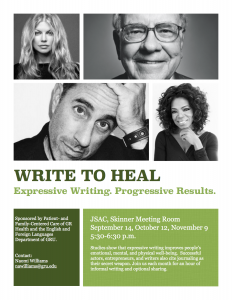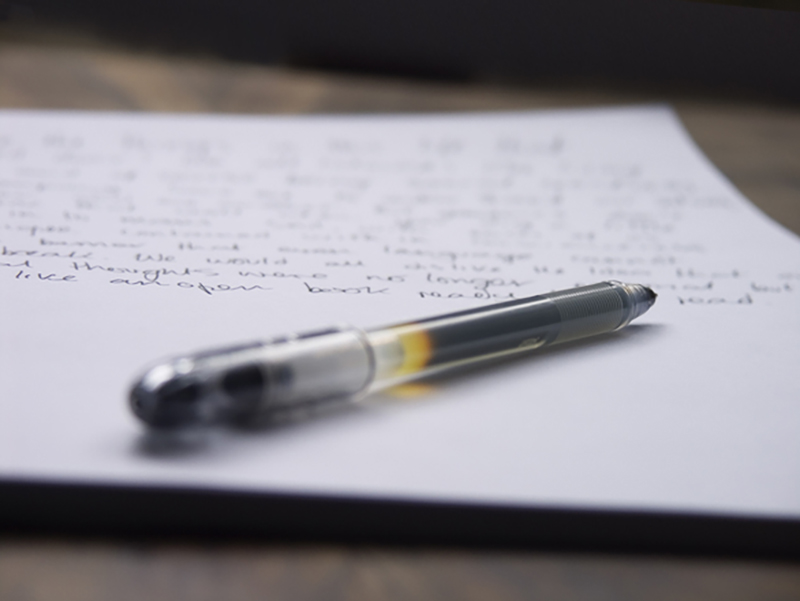For years, leading psychologists around the world have stressed the importance of writing for emotional well-being. The process, says Dr. James Pennebaker of the University of Texas at Austin, has been shown to improve mental health and shorten patient recovery time following psychological trauma.
But is there more healing potential in the written word than we previously thought?
According to Monitor on Psychology, the American Psychological Association’s monthly journal, as early as 2002, research showed that patients who journal about their emotions and stress also showed encouraging physical and immune-system responses. Even patients suffering from addiction and terminal illness showed signs of improvement.
The truth is: writing is healing, too.
That’s why, in July of 2013, Georgia Regents University launched its very own Write to Heal program.
Anna Harris, an assistant professor in the Department of English and Foreign Languages, said the program is part of an ongoing research mission begun years ago by Pennebaker.
“Part of our motivation has to do with research,” she said. “We want to continue discovering the benefits of expressive writing for people’s emotional, mental and physical well-being.”
But research isn’t the program’s only motivation.
Founded by a family support coordinator at the Children’s Hospital of Georgia and members of the GRU English and Foreign Languages faculty, the Write to Heal program was originally designed to offer a sense of support and community to patients, caregivers and health care providers alike. That goal, Harris said, hasn’t changed, though it has expanded.
Starting this semester, the program is open to the public.
“[Write to Heal] was started as a means of coping with hospitalization for our patients and an outlet for health care providers and family members to acknowledge and process their feelings,” said Naomi Williams, a family support coordinator for the GRU Cancer Center. “This semester, it’s open to anyone who would like to participate, including students and community members, free of charge.”
During monthly Write to Heal sessions, participants are encouraged to write about their feelings. Stress, trauma, negative emotions – no subject is off-limits, and writing prompts are developed for each session. While participants are encouraged to share what they’ve written, Williams stresses, it is not mandatory.
“The intent of the program is to help people, through writing, to acknowledge, express and begin to process their feelings in a safe environment,” Williams said. “Participants are given the opportunity to share; however, we respect their right not to do so.”
The next Write to Heal session will be held on Monday, Oct. 12, in the JSAC Skinner Meeting Room on the Summerville Campus. A session is also scheduled to follow Literary Week on Monday, Nov. 9.
For more information about the Write to Heal program, contact Naomi Williams at nawilliams@gru.edu or 706-721-5160.
 Augusta University
Augusta University




